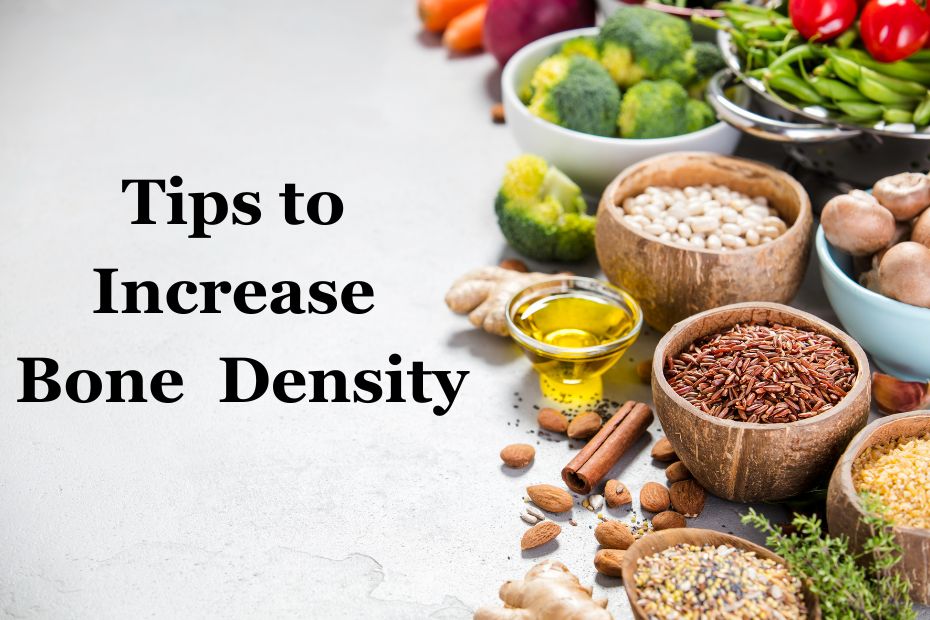Bone density refers to how strong your bones are. It is a characteristic of bone that determines its ability to survive stressors and also its resilience. Bone density depends on a lot of factors like genetics, diet, and lifestyle. As they like to say, high bone density is a product of nature and nurture. A good diet and physical exercise help achieve higher bone density. Peak bone mass is the highest bone density in a person’s life. It is usually seen around 30 years of age. A high peak bone density can protect against stress fractures and bone diseases like osteoporosis.
Let’s look at some natural ways to boost bone density.
Eat your Veggies.
Vegetables are a very rich source of antioxidants and vitamin C. Vitamin C helps build collagen, which helps form the bone matrix in the bone. It also helps in the development of bone cells and their propagation. Antioxidants help bone cells stay protected and active. Minerals from vegetables provide building blocks for the substance of the bone, and higher consumption of vegetables at a young age has shown greater mineral density in older age groups. This is especially true in the case of colored vegetables like yellow and green vegetables.
Include more protein in your Diet.
Protein provides amino acids, which are the raw materials for building collagen, which makes up 50% of the bone. A protein-rich diet can boost bone formation and strength, and a high-protein diet during weight loss can help protect the bones from the effects of bone loss. It is however extremely important to consume a good amount of calcium with a high-protein diet, as according to some studies, there is leaching of the calcium from bones when protein in a diet exceeds 100 grams. Studies show that a high-protein diet has helped improve the bone density status of post-menopausal women with osteoporosis and osteopenia over a few months.
Increase Calcium intake throughout your Diet.
Calcium phosphate is an important mineral in the bones’ structure. Calcium comprises almost 40 percent of the bone. In that regard, eating a diet rich in calcium is very beneficial to your health. Spread out your calcium intake through all the meals to reap the benefits. A higher intake of calcium is required during adolescence, lactation, pregnancy, and menopause. Although a generalized intake of calcium can help with heart health and overall well-being, intake in the form of calcium supplements can somehow increase the risk of heart disease.
bump up the intake of omega-3 fatty acids.
Increase intake of Mega Fatty acids, Including Omega-3 and Omega-6 Fatty Acids.
These fatty acids are antioxidants and come from a variety of sources, like plants, flax seeds, and even fish oil. Omega-3 fatty acids have shown an increase in bone formation and density, helping to maintain better bone health. To see real benefits, Omega 3 and Omega 6 need to be consumed in a ratio of 1:4. This is in light of studies that have shown that only consuming a diet rich in omega-3 fatty acids can worsen bone loss.
Zinc and Magnesium are your Friends.
Magnesium, although not directly involved in bone formation, helps in the uptake of calcium by converting vitamin D into a more potent form. Vitamin D helps in the uptake of calcium from the intestine and takes it to bone formation. Zinc is also a great antioxidant, protecting bone health and strength. It is a powerful antioxidant for osteoblast and osteoclast health.
Strength Training and Lifting Weights
High-intensity workouts that involve lifting can help increase bone density and strength. It is protective against osteoporosis and osteopenia in older adults. It also helps build muscle, increase joint proprioception, and increase bone thickness. Strength training helps prevent bone loss in menopausal women and reduces inflammatory markers and bone formation markers in people with bone disease.
Avoid Crash Diets and extremely Low-Calorie Diets.
Taking a diet that is less than 1000 calories over some time can lead to muscle loss and bone loss as well. The body goes into a state of hunger and starts leeching minerals from the bones as well as absorbing muscles. This is very detrimental to the bones’ health as there is a lack of structure and support. Even when on a calorie deficit, try to maintain a calorie intake above 1300–1400 calories.
Get some more Sunshine Vitamin.
Vitamin D is an essential vitamin when it comes to bone health. It is produced naturally by the body following sunlight exposure, especially in the morning before noon. It is very helpful in the uptake of calcium from the digestive tract and thus the maintenance of bone density.
It is recommended to take 2000 IU of vitamin D every day via food and sun exposure. This is, however, becoming less possible with our indoor and sedentary lifestyles. Consider taking vitamin D supplements and getting your vitamin D levels checked regularly.

